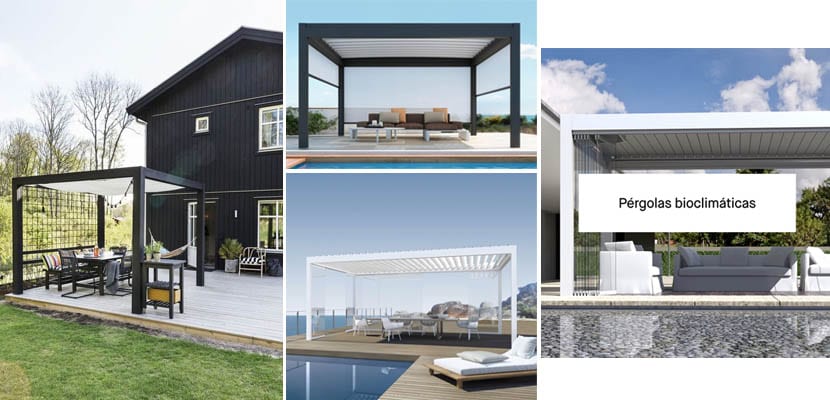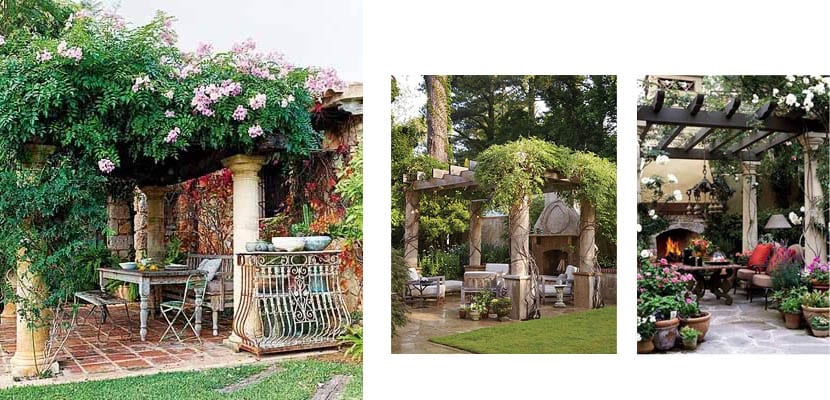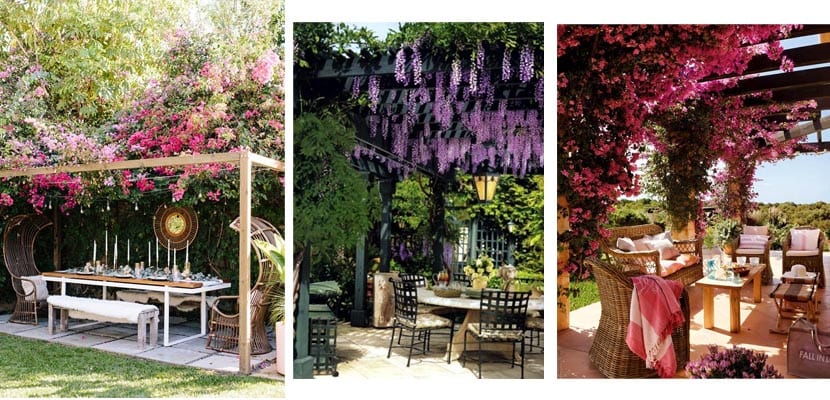
Do you usually organize parties or gather family and friends at your house? Do you want to be able to take advantage of the outdoor spaces during any time of the year? Pergolas They allow us to expand the useful surface of our home, providing us with a pleasant and protected place from the sun in which to gather.
What is a pergola?
A pergola is a structure formed by two parallel rows of columns or pillars and a roof of transverse beams or trellis, on which climbing plants are generally interwoven. The main objective of these structures is none other than to provide shade in an open space and for this purpose we can find them for this purpose both in public spaces and in private spaces.
They are usually used in walkways and paths to provide shade, but also in more open areas in order to install a resting area protected from the sun. They are traditionally covered in climbing plants to keep them fresh. However, it is increasingly common to use covers that, in addition to the sun, protect from other inclement weather.
Structure materials
The material used for the construction of its structure will depend on the aesthetics of the pergola itself. Wood is the most demanded material, but it is also possible to find pergolas with stone columns or with metal structures.
Wood
The wooden pergolas are made of woods capable of withstand inclement weather. On the one hand, tropical woods with great natural resistance such as ipe or teak. On the other hand, treated woods, especially autoclaved, such as pine or fir.
The type of wood used in its manufacture is as important as its correct maintenance. To protect the wood and prevent it from spoiling it will be necessary to varnish it roughly every two years. Only in this way will we ensure that the sun and rain do not age it prematurely.
The wooden pergola is the favorite in our gardens and the most suitable when you want to reinforce the warm and rustic character of an outer space. Climbing plant covers represent the traditional image of what we know as a pergola.
Metal
Metal pergolas have a more aesthetic avant-garde and modern than the previous ones. They are usually made of aluminum and / or steel and usually have sliding covers made of polyester or textilene in white or gray.
When the objective of the pergola is to expand the interior space of the house, the ceilings made of polycarbonate plates gain ground. These allow light to pass through protecting you from UV rays in summer and are watertight, which will allow you to use them at any time of the year despite inclement weather.
It is increasingly common to buy pergolas in order to be able to enjoy these also in winter. Designed to meet our needs throughout the year, the bioclimatic pergolas, the latest trend. They are motorized pergolas, whose slats move to regulate the amount of light, promote ventilation and prevent the passage of rain.
Stone
The use of stone columns It is not as common as it used to be, but if you want to give your garden a classic and stately air, these become a great ally. They are, yes, an exclusive option comparing them with the previous ones.
Climbing plants
Like materials, plants are also important when defining the style of a pergola. There are numerous climbing plants with which to cover the pergola that in addition to providing us with an oasis on the hottest days of summer, they will bring color to the garden.
Wisteria, bougainvillea, jasmine, roses, clematis and / or bignons, are some of the most popular climbing plants to cover pergolas. Wisteria provide a rustic aesthetic to the pergola. Jasmine and clematis are favorites for a relaxed, wild atmosphere. Bougainvilleas will give our garden a Mediterranean air and roses? Roses will bring elegance and romance.




